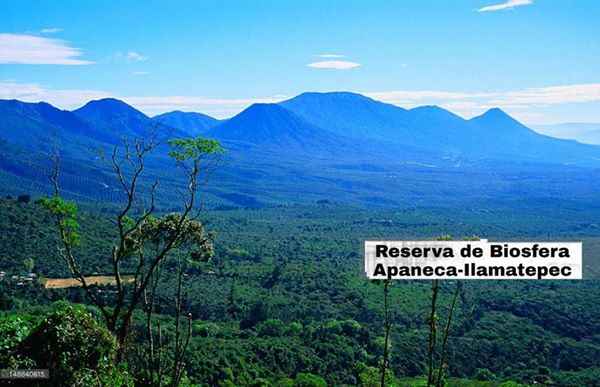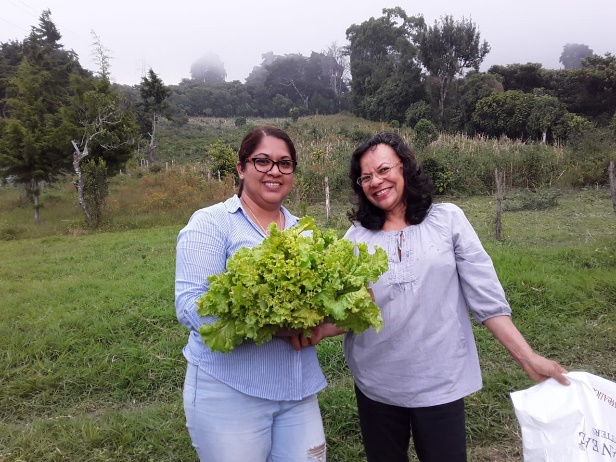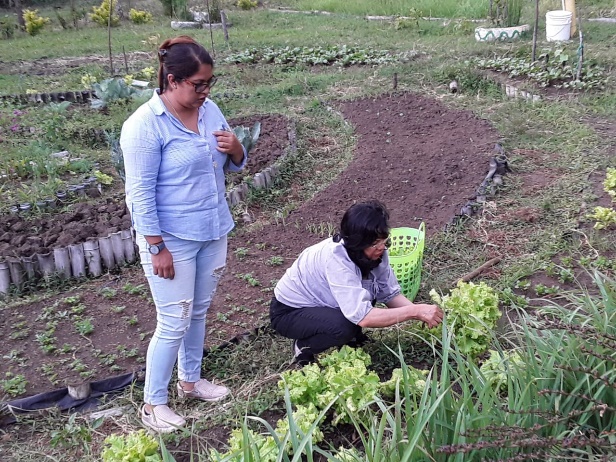Make Your Experiences Count. They Can Change the World.
LET’S BRING ALL OF OUR KNOWLEDGE AND EXPERIENCES TOGETHER.
TOGETHER WE KNOW MORE. TOGETHER WE ACHIEVE MORE. TOGETHER WE DO BETTER.
LET’S BRING ALL OF OUR KNOWLEDGE AND EXPERIENCES TOGETHER.
TOGETHER WE KNOW MORE. TOGETHER WE ACHIEVE MORE. TOGETHER WE DO BETTER.
Published: July 15, 2020
First steps towards collaboration between organic farmers and the tourism and gastronomy sector in the Apaneca-Ilamatepec Biosphere Reserve in El Salvador.
In 2007 UNESCO declared a natural area in the West of El Salvador as the Apaneca-Ilamatepec Biosphere Reserve (RBA-I for its Spanish abbreviation). The goal of this declaration is to minimize conflict between development and conservation. The RBA-I is known for its diverse nature, its high quality shade grown coffee, pleasant climate and cultural diversity. The Foundation of Socio-Economic Development and Environmental Restoration (FUNDESYRAM), Partner Organisation of HORIZONT3000, is currently implementing a project which aims at conserving this area, its water sources and the fertility of the soils by promoting agroecology and organic agriculture and stop the unsustainable ways of producing food with the use of harmful pesticides. (For more information see the project map and report).

The biodiversity and nature that FUNDESYRAM is protecting are also main reasons why several towns and touristic attractions of the RBA-I have over the years developed into popular tourist destinations for national and international tourists that come to enjoy its climate, views and coffee.
It is thus clear that the tourism and gastronomy sector and the farmers and non-profit organizations working in environmental restoration share a common goal: protecting the nature in the area in order to safeguard biodiversity and access to water and to keep the area attractive as a tourist destination. This common goal forms the basis of the ambition to establish closer collaboration between organic farmers, non-profit organizations and the for-profit tourism and gastronomy sector. Traditionally cooperation between the for-profit and the non-profit sector is limited and difficult, since both sectors have different networks, different ways of working and thinking and mutual prejudices about each other. While it is true that there are also unsustainable actors involved in the tourism sector that harm the environment, it was the goal of FUNDESYRAM to find those forerunners that really do believe in sustainable tourism in harmony with Mother Nature and try to mutually benefit from this cooperation.
The first steps were taken in the town of Apaneca, which as an ever more popular tourist destination formed the perfect place for the initiative. In places where initial collaborations with some of the bigger hotels and restaurants stalled, because of already established supply chains, later initiatives with small and medium sized hotels looked more promising. During several project meetings and gatherings of the local tourism committee – consisting of travel agencies, hotels, hostels and restaurant owners of Apaneca – connections between farmers and businesses were tightened and plans were elaborated.
During these gatherings it was great to see the entrepreneurs’ dedication about local development and nature conservation and it became clear that there was mutual enthusiasm for a closer collaboration between farmers and local businesses. During brainstorm sessions plans were established about organic certificates, treatment of organic waste and the organization of agroecological tours. However, while these plans should certainly have a place in the future, it was agreed to take a practical step by step approach and first focus on the direct linking of farmers and the tourism sector and establish agreements on buying local organic products directly from the farmers. In that way the intermediate sellers would be eliminated from the process, which allows the farmers to receive a higher price for their products and provides the restaurants with high quality local organic products, while showing their dedication about the environment and local development to their customers.

The initiative was ready for take-off when the corona crisis hit El Salvador. Due to the current limitations in mobility and gatherings and the complete collapse of national and international tourism, the initiative is currently on a temporary hold. Nonetheless we are confident that as soon as the tourism sector is taking pace again, the collaboration between farmers and the tourism sector can be deepened to contribute to a local based tourism sector that works in harmony with Mother Nature.
Since the process was still in its early stages, it is not possible to draw well-founded and statistically substantiated conclusions about the process yet. Nevertheless, I would like to share 10 initial recommendations on starting cooperations between local organic farmers and tourism and gastronomy businesses, which could be helpful for other organizations that are interested in doing so. These recommendations are based on our first experiences and observations. Even though these recommendations are of general nature and could also apply to other places, it is important to note that different local realities could require different strategies and there is no one-size-fits all approach.

In sum, there are many hurdles to take and logistical challenges to solve, and we have to keep learning and adjusting our efforts. But I do believe that there can be a bright future for direct cooperation between organic farmers and the tourism sector and this could play an important role in a sustainable development for the region, in which economic development and the conservation of nature are harmonized. We could shorten the supply chains for mutual benefits and diminish the dependence on the import of products. Furthermore by including new actors from the private sector you create a broader and more diverse alliance towards the conservation of the area which makes your position stronger and allows for more effective future advocacy.